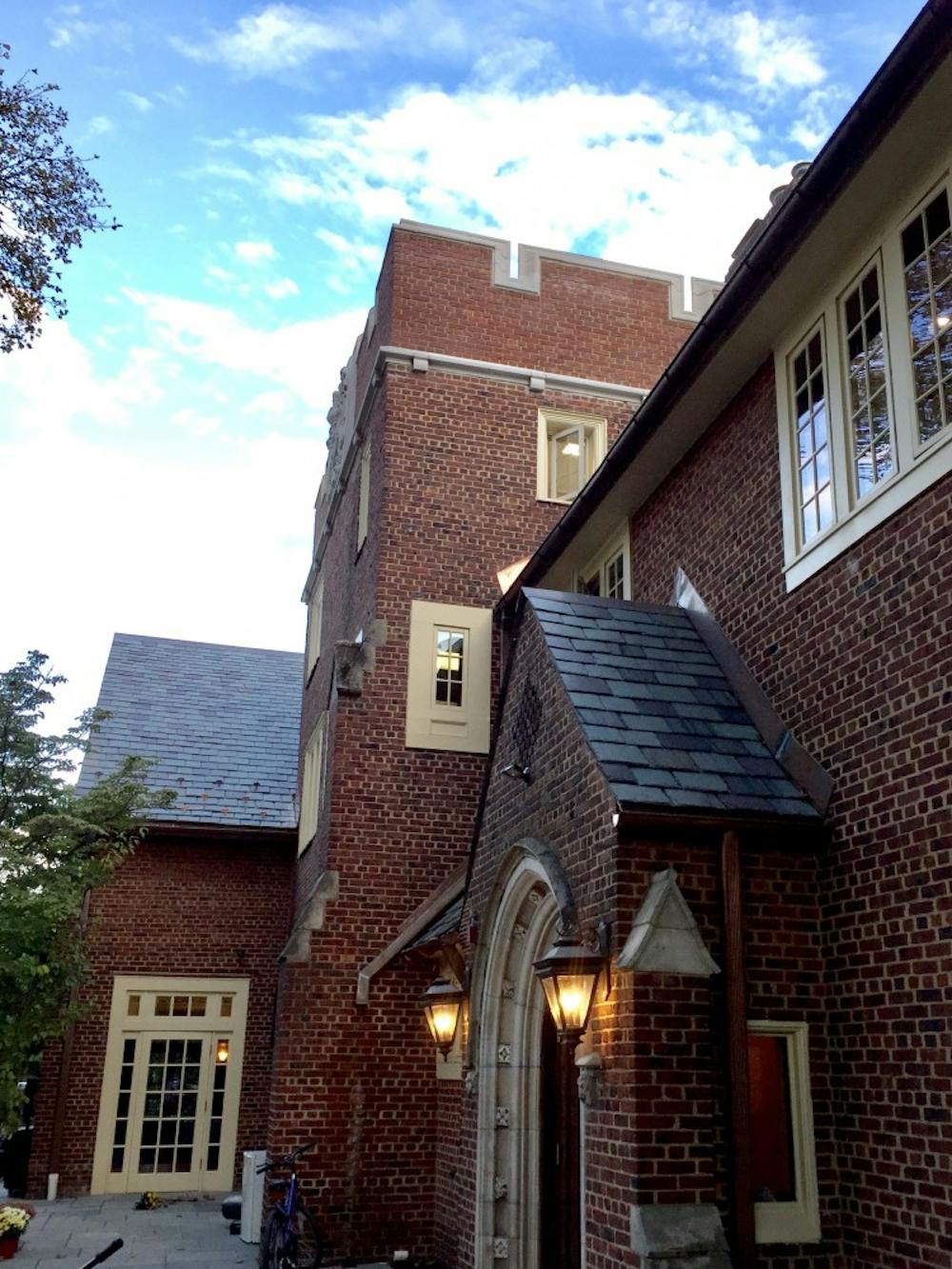
As part of a one-year Campus Dining pilot program, beginning Oct. 9 meal exchanges between the University dining halls and eating clubs will be entirely electronic. Meal exchanges between students who are both members of eating clubs will continue to operate on paper.
In previous years, students on residential dining plans had to fill out paper forms in order to eat at one of the 11 eating clubs without added expenditure, and vice versa.
Princeton’s Meal Exchange program, designed to allow people in eating clubs and residential colleges to eat together, consists of a one-to-one swap of meals between the dining hall and the eating club to which each participant belongs and is administered jointly between the Inter-Club Council and Campus Dining.
A student wanting to complete a meal exchange will now add a second student as a ‘friend’ on the Meal Exchange website. To complete the exchange, the visiting student will log onto the Meal Exchange website and pull up a unique barcode, which can then be scanned at the door to either the club or the dining hall. New barcode scanning machines can now found be at respective meal checking stations.
The other half of the exchange must be completed within 30 days.
The 30-day window is a divergence from previous policy, where students were required to complete exchanges by the end of the calendar month in which they were begun.
The electronic meal exchange “[allows students] greater latitude to complete the exchanges,” said David Goetz, a Campus Dining representative. “We think we’ve developed a system that will facilitate [completed exchanges] in a much better way.”
If students fail to complete both halves of a meal exchange within the allotted time frame, the student hosting the first half of the exchange is responsible for paying the remaining balance of the meal. For example, member students at the Tower Club are responsible for paying $10 for an incomplete lunch swap or $15 for an incomplete dinner swap. If the first part of an incomplete exchange is hosted at a dining hall, the host participant is responsible for paying the standard meal charge.
The electronic system represents the culmination of years of collaboration between the Office of Information Technology, the Office of the Dean of Undergraduate Students, University Services, and Campus Dining.
“We’ve partnered with students to design, develop, and implement [the new system],” said Smitha Haneef, a University Services representative and the Assistant Vice President of Campus Dining. Haneef noted the contributions of Ella Cheng ’16, former president of USG, who served as a voice for students throughout the project’s development process.

One perk of the newly implemented electronic system is that it provides greater ease for sophomores curious about dining at eating clubs to explore them prior to bicker and sign-in seasons.
“Having meals with upperclassmen allows [students] to get a feel for [the clubs] and really what they’re looking forward to, but also to demystify the idea of eating clubs that seems so far from underclass students,” said USG president Myesha Jemison ‘18.
Similarly, Claudia Popescu ‘21, a student who plans to utilize the new Meal Exchange system to share a meal with an upperclassman friend in Terrace F. Club, believes the exchange system facilitates the process of “students [becoming] familiar with the eating club environment before having to sign in.”
However, the ultimate goal of the new plan is to further provide for and unify Princeton’s undergraduate student population.
“This is one of the ways we believe that we are able to bring solutions in service of our students, and here it’s not a differentiation between and amongst students. The entire undergraduate student body is who we want to care for, nurture, nourish, and this is an example and indicative of that,” Haneef said.
The Meal Exchange program cannot be used at Frist Campus Center or in Princeton’s independent co-ops. The Campus Dining website, which outlines policies and restrictions placed on the Meal Exchange, can be found here.







